





Hypocalcemia
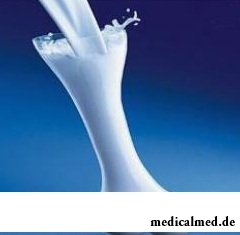 Normal concentration of calcium in a blood plasma of the person makes 2,2 – 2,5 mmol/l. At its decrease lower than 1,87 mmol/l the morbid condition called by a hypocalcemia develops.
Normal concentration of calcium in a blood plasma of the person makes 2,2 – 2,5 mmol/l. At its decrease lower than 1,87 mmol/l the morbid condition called by a hypocalcemia develops.
Hypocalcemia reasons:
- Hypoparathyrosis. At long ischemia of epithelial bodies, their hypoplasia or removal there is a sharp decrease in content in blood of the parathormone necessary for maintenance at the physiological level of content in plasma of calcium ions. As a result of it excess removal of calcium is stimulated with kidneys and release of this element from a bone tissue is slowed down;
- Hypovitaminosis of D. At this state processes of absorption of calcium in intestines, and also its exchange in a bone tissue are broken that is the reason of a hypocalcemia.
- Hypersecretion of the antagonist of parathormone – thyrocalcitonin;
- Some diseases of intestines (sprue, resection of the site of a small intestine, chronic enteritis) at which absorption by a mucous membrane of a small bowel of calcium is broken;
- Acholia – the termination of receipt in a small intestine of the bile necessary for normal course of processes of membrane and band digestion, and also for vitamin D metabolism;
- Noncompensated chronic alkalosis. In this case because of the raised pH of a blood plasma there is an active linkng of calcium ions with proteins that is the reason of a hypocalcemia;
- Hypomagnesiemia. Deficit of magnesium in a blood plasma leads to decrease in secretion by parathormone epithelial bodies. In addition, at a hypomagnesiemia biological activity of vitamin D and parathormone in a bone tissue also decreases;
- Hypoalbuminemia (the lowered contents in a protein blood plasma). The hypocalcemia reason in this case is that there is a decrease in concentration of the general level of serumal calcium at the expense of its fractions connected with albumine.
Hypocalcemia: symptoms
The hypocalcemia is usually combined with a hyperpotassemia that leads to emergence of a hyperexcitability of muscle and nervous cells, and also increases the speed of carrying out excitement in them. Increase in neuromuscular excitability is shown by developing of tetanic spasms which can affect various groups of muscles (mimic, throats, brushes, legs, etc.). At easy degrees of a hypocalcemia the latent tetany is observed. It is characterized by positive symptoms of Trusso (when pressing on muscles of a shoulder there are brush myotonia) and/or Hvosteka (spasms of mimic muscles at irritation of a branch of a facial nerve). Symptoms of a hypocalcemia are also various disturbances of skin sensitivity (numbness, a pricking, burning).
Other symptoms of a hypocalcemia are:
- Hemorrhagic and hypocoagulative syndromes. They are shown by the raised bleeding because of decrease in coagulability of blood. Their development is explained by the fact that the lack of calcium increases permeability of walls of blood vessels. In addition, this chemical element is necessary for activation of some factors of coagulant system of blood.
- Dystrophic changes of the fabrics which are ectoderm derivatives. They are shown by various defects of teeth, the increased fragility of nails and hair, a xeroderma, development of a cataract.
- Disturbances of a cordial rhythm.
Hypocalcemia at children
The deficit of calcium leading to development of a hypocalcemia can be observed at children of any age. Very often leads a lack of a diet of calcium and phosphorus, vitamin D to development in them of this morbid condition. In addition the hypocalcemia at children can be caused also by any other reason from listed above.
The hypocalcemia at children is usually shown by a triad of symptoms:
- Carpopedal spasm. At it brushes adopt the characteristic provision called by "obstetrical hand";
- Stridor (noisy, goose breathing). Results from a laryngospasm;
- Convulsive syndrome.
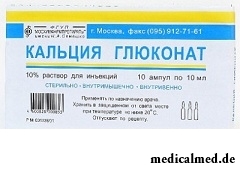
At a hypocalcemia at children the carpopedal syndrome is more often observed, and here the stridor and spasms are much more rare.
Hypocalcemia: treatment
At a hypocalcemia it is necessary not only to fill the available shortage of calcium, but also to try to remove whenever possible the cause which led to development of this morbid condition.
At a hypoparathyrosis appoint replacement hormonal therapy. At tetany attacks against the background of an acute hypocalcemia intravenously enter solution of chloride or a gluconate of calcium. For treatment of a hypocalcemia in a chronic form sick appoint vitamin D (calcitriol, ergocalciferol) and calcium drugs in tablets (a calcium gluconate, calcium carbonate). In the presence of a dekompensirovanny alkalosis carrying out measures for correction of KShchS of blood is necessary.
Also at treatment of a hypocalcemia it is important to normalize the level of potassium, magnesium and protein in a blood plasma. If necessary adequate therapy of the digestive tract diseases which are available for the patient is appointed.
The person accepting antidepressants in most cases will have a depression again. If the person coped with depression by own efforts, he has every chance forever to forget about this state.

Scientists always aimed to offer fundamental explanations for medical problems. Their theories formed the basis of modern methods is treated...
Section: Articles about health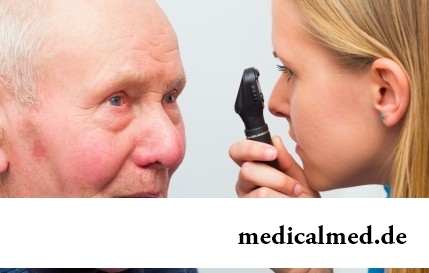
According to data of World Health Organization, the cataract is diagnosed almost for 7% of the population of Earth. The statistics of incidence is considered not full as at an initial stage the illness, as a rule, does not cause to the person of special inconveniences, and many having got sick...
Section: Articles about health
Subfebrile temperature call fervescence to 38 degrees, and subfebrile condition - existence of such temperature over 3 days, and quite often it happens without the visible reasons. Existence of subfebrile condition - a strong indication of disturbances in an organism which can be caused by various reasons: disease, stresses, hormonal failures. Despite the seeming inoffensiveness it is a state at which people often continue to lead a usual life, often is a sign of many of a zabolev...
Section: Articles about health
Cold, puffiness of a nose, itch, the watering eyes - characteristic symptoms of the allergic rhinitis resulting from hit and...
Section: Articles about health
Mushrooms - the surprising inhabitants of our planet having a set of wonderful qualities. Thanks to one of them, a mold mushroom of Penicillium notatum, the first natural antibiotic - penicillin was received nearly 80 years ago. The mankind is obliged to this opening миллио...
Section: Articles about health
Smack in a mouth can arise in the natural way – as a result of lack of morning hygiene or reception of the corresponding food. However in certain cases its existence is a sign of certain pathologies, and allows to reveal an illness at an early stage. Depending on character of aftertaste – acid, salty, bitter, sweet – distinguish also diseases which accompany it....
Section: Articles about health
Eyes – unique body on the structure thanks to which the person obtains about 80% of information on the world around: about a form...
Section: Articles about health
Any person who faced a disease knows that treatment costs expensive. It belongs also to consultations of qualified specialists, and to the diagnostic procedures which are not included in the list of obligatory medical services. Question of cost of medicinal Wednesday...
Section: Articles about health
Sugar - the digestible refined product which is not of special value for an organism of the modern person. The use of sugar in food is based rather on the psychological dependence caused by desire to indulge itself with something tasty, and further and the biological, caused need of an organism for glucose as a result of big emissions of insulin in blood. Such circulation of insulin and glucose with continuous increase in portions of sugar is rather offensive and can become the reason for a narusha...
Section: Articles about health
Any of us is not insured from a heavy illness of the loved one. Happens and so that someone from family members becomes lying бо...
Section: Articles about health
Musicotherapy – a treatment method which caused and causes a set of a controversy concerning its efficiency. However the facts are relentless: during the numerous researches curative impact of music on an organism was scientifically confirmed. Since then in a number of the countries a method...
Section: Articles about health
The sclera and mucous membrane of an eye are intensively supplied with blood vessels which problem - to saturate nervous tissues of body with nutrients and oxygen. In a normality vessels are almost not noticeable, however at their expansion (owing to thinning of walls) become visible, painting a sclera in red color. Quite often red eyes - the signal of any trouble in an organism caused as external irritants, allergens, and diseases which need in about...
Section: Articles about health
Household skills which to us so diligently imparted in the childhood it appears, not always bring only benefit. According to result...
Section: Articles about health
It seems, quite recently you brought the baby from maternity hospital, but time flew by, and here it is already going to join the first in life children's collective. How to prepare the child for visit of a garden? What needs to teach him to facilitate process адап...
Section: Articles about health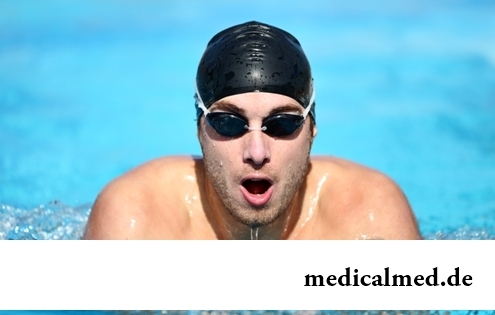
The advantage of swimming for the person is so high that this sport is not only the most popular, but also is widely applied in medicine and rehabilitation processes. If you look for for yourself the occupation allowing pleasantly and to spend time, then swimming with advantage – the fact that it is necessary for you. And give learns several facts about swimming....
Section: Slideshow
The summer of this year in Russia was very ambiguous. Regions suffered from a merciless heat, from pouring rains, from times...
Section: Articles about health
To look healthy and means well-groomed not only to be pleasant to people around, but also to feel strong, sure and taken place. Specialists in the field of cosmetology quite often note that whether not all women are able to look after skin...
Section: Articles about health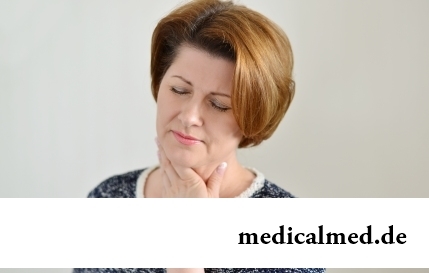
Each person has easy indispositions which he transfers "standing", trying not to ask for medical care. Arguments at the same time are adduced same: "it is a trifle, itself will pass", "I have too many important issues", "there are no wish to spend time for doctors", etc. At good shape of health, normal working capacity and lack of suspiciousness dislike for complaints to such problems is quite natural. It is not the most correct, but very widespread type of behavior. I am glad...
Section: Articles about health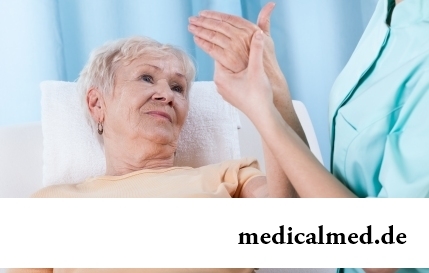
Osteoporosis this general disease which main sign is decrease in density of a bone tissue. On width распростран...
Section: Articles about health
What they, women? Beautiful, gentle, passionate and at the same time windy, gusty, and nervous. And what is stranger: have all these qualities of the woman at the same time. But here only the mood their time sharply changes on completely opposite: in the morning...
Section: Articles about health
Neurosis is called pathology of a nervous system at which deviations in functioning of the highest nervous processes are observed. Most often - owing to yet not strengthened mentality - children are subject to neurosises. The unhealthy, hostile atmosphere in collective, a family, the strong and sharp shock, and also a set of other factors which negatively influence the little person who did not learn to overcome stresses yet can become premises to emergence of such disturbances....
Section: Articles about health
Statistically, in Russia about 34% of citizens smoke. Most of consumers of tobacco has problems about health sooner or later...
Section: Articles about health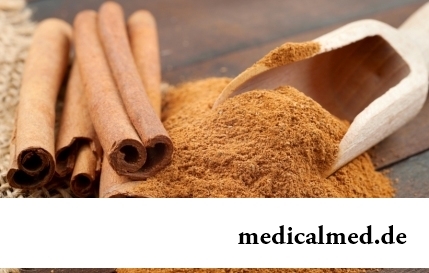
Ayurveda - the most ancient tselitelsky practice which came to us from India. It represents the doctrine about maintenance of physical, psychological and moral health of the person by means of the complex of procedures including a diet, cleaning of an organism, respiratory упр...
Section: Articles about health
The popular expression "run from a heart attack" became the motto of the people supporting active lifestyle. Moreover, run became a peculiar fashionable tendency: sales of racetracks and the accompanying goods for run are at permanently high level. Whether really it is possible for one and all people and it is necessary to run to receive the portion of health, a charge of cheerfulness and good mood?...
Section: Articles about health
Summer in the heat. Many are going to spend vacation abroad. Travelers the tender seas, rest on beaches wait, for survey достоп...
Section: Articles about health
About 10-15 years ago existence of the computer in the apartment of the Russian was considered as a rarity and office rooms were only at the first stage of equipment by these useful devices. Today practically in each house there is a computer (and often not one), and to constants...
Section: Articles about health
Among a set of the perfumery and cosmetic goods which are released today the special group is made by the means containing antibacterial components. Such types of gels, shampoos, soaps, creams, lotions and other products are positioned by manufacturers as a panacea from all diseases caused by pathogenic microorganisms. The unlimited and uncontrolled use of similar means becomes result of trustfulness of the buyers hypnotized by persuasive advertizing sometimes. Many spetsial...
Section: Articles about health
